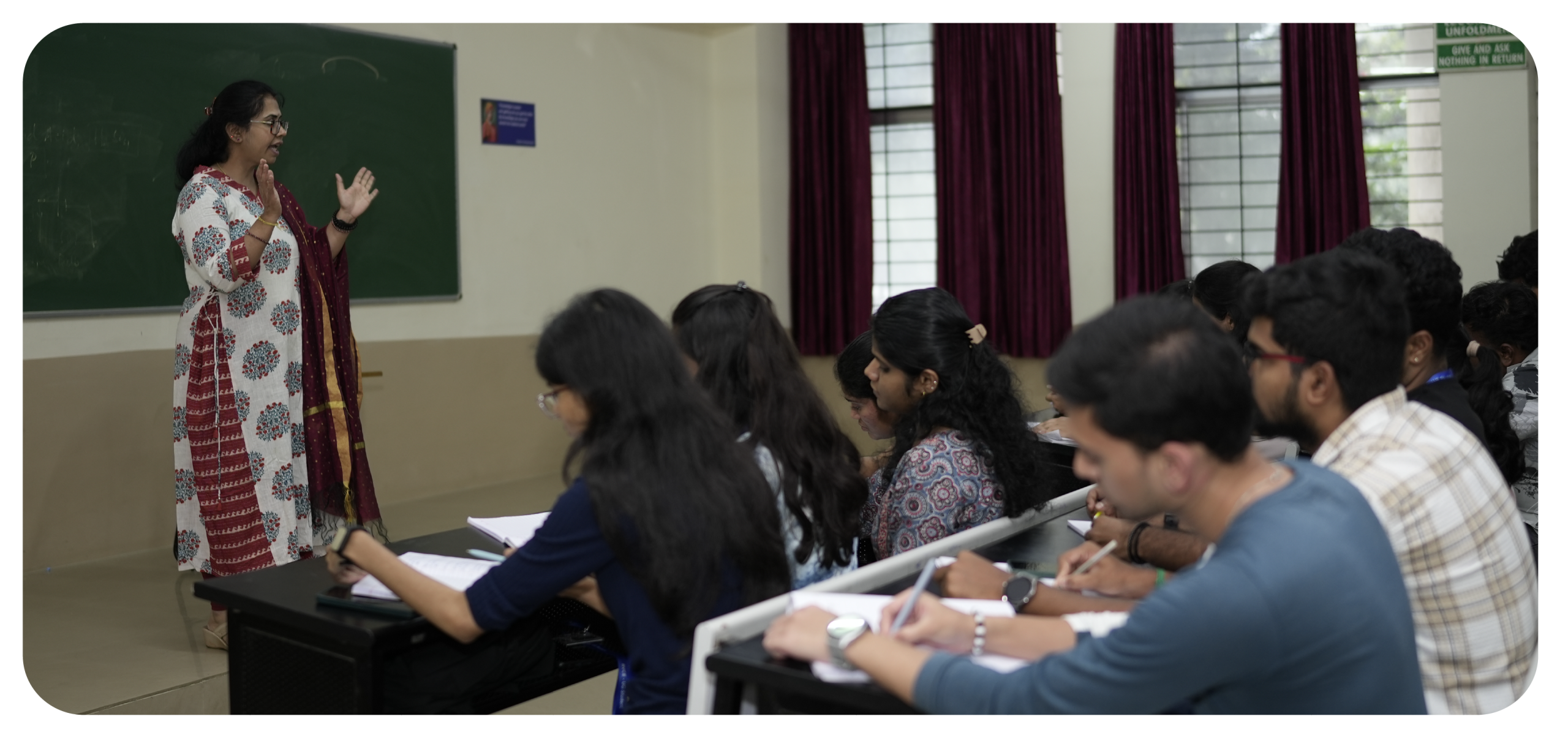
M.TECH. IN
Power Electronics
M.TECH IN Power Electronics
- Home /
- MTech in Power Electronics
18
2 Years
![]() NBA
NBA
About the Programme
With the rise of electric vehicles, renewable energy, and smart grids, Power Electronics stands at the core of the global energy transition. Established in 2006, the M.Tech. in Power Electronics programme at RVCE combines academic rigour with a strong industry interface.
With 35 companies visiting for placements(2024–2025), the programme equips students to pursue interdisciplinary R&D, consultancy, and entrepreneurial ventures. Real-world projects under MoUs with firms like Bosch-Rexroth AG, LAPP India, and FluxGen, along with internships at ABB, Siemens, Schneider Electric, L&T, and Centum, provide valuable industry exposure.
Power Electronics is central to today’s shift toward EVs, renewable energy, and smart grids. RVCE’s M.Tech. in Power Electronics, started in 2006, blends strong academics with industry exposure. With 35 companies visiting for placements (2024–25), students gain hands-on experience through MoUs with Bosch-Rexroth AG, LAPP India, and FluxGen, and internships at ABB, Siemens, Schneider Electric, L&T, and Centum.
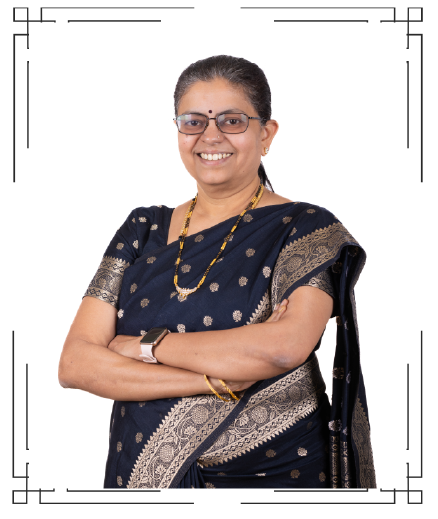
Message FROM
DEAN PG STUDIES (CIRCUIT PROGRAMMES)
RV College of Engineering has been offering Post graduate programs since the year 1997 (MCA) and 2004 (MTech). The programs have been successful in terms of Academic outcome, Industrial Internships, Conversions to full time Placements, Higher education and Research, Accreditations with good grades (both in Tier I and II). These are an indication of RVCE’s commitment to quality and Excellence.
The curriculum is Industry oriented, with Courses on cutting edge technologies, well quipped laboratories and Centers of Excellence for Project works and research, qualified faculty mentors and technical staff to support.
There are Extra and Co-curricular activities, Innovative project clubs and International University collaborations to add value to the programs.
Come and be a part of our Master degree programs in MCA and MTech and fulfil your dreams.
Dr. K Sreelakshmi,
Professor and PG Dean (Circuit)
Placement Overview
companies visited
offers made
students selected
Salary
salary
*Placements Ongoing
Top Recruiters & Industry Collaborations






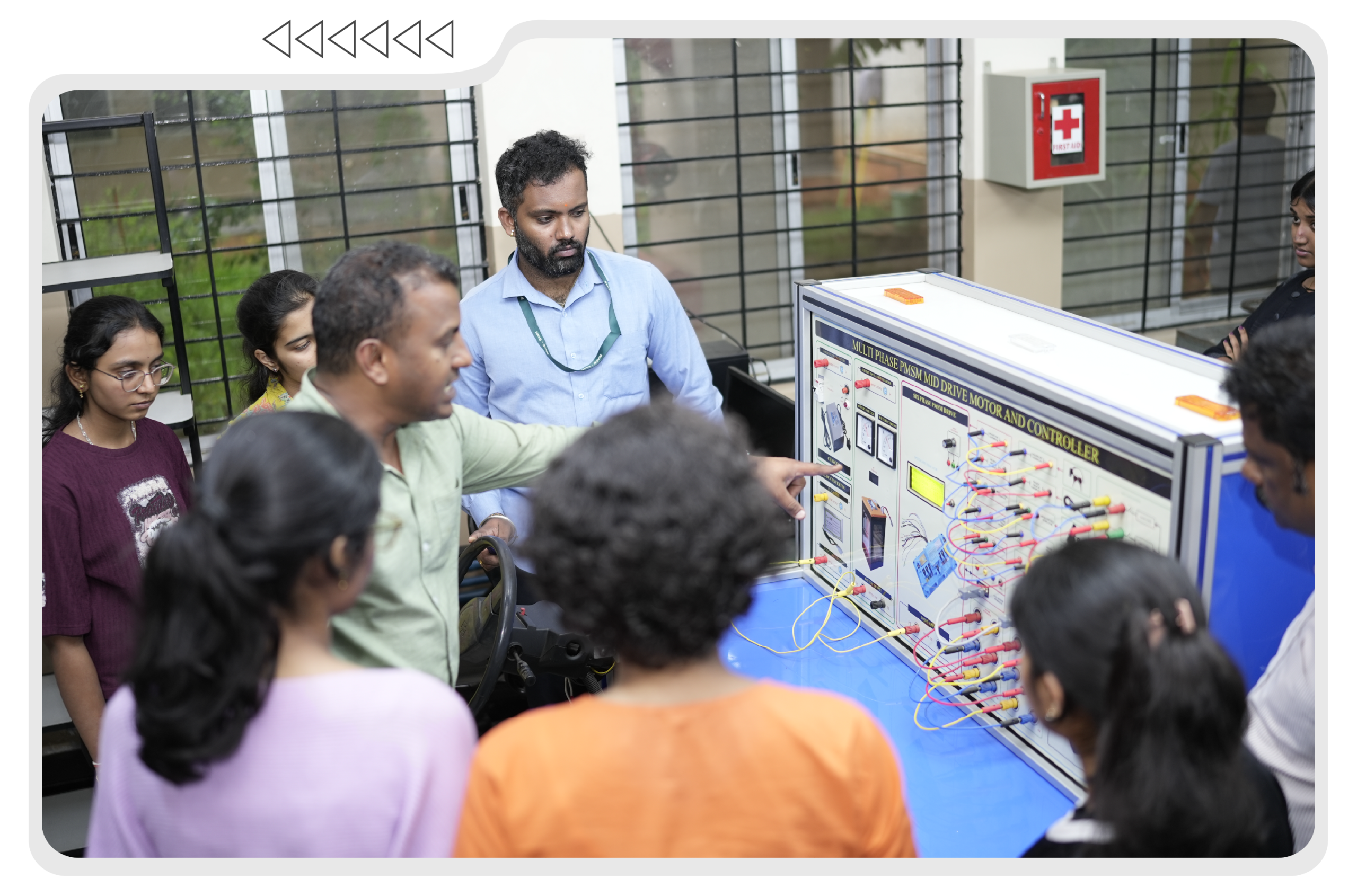
MORE ABOUT THE DEPARTMENT
Programme Outcomes (PO)
M. Tech. in Power Electronics graduates will be able to:
- PO1: Independently carry out research/investigation and development work to solve practical problems in power electronics.
- PO2: Write and present a substantial technical report/document.
- PO3: Demonstrate a degree of mastery over power electronics at a level higher than the requirements in the Bachelor’s programme of Electrical Engineering.
- PO4: Demonstrate the modern engineering tools and techniques for modelling and development of power electronic systems.
- PO5: Apply the knowledge of power electronics for the development of solutions to problems about smart grids, renewable energy systems, electric vehicles, and modern power and control systems.
- PO6: Demonstrate professional integrity, ethics, teamwork, and soft skills for lifelong learning and sustainable development in the field of power electronics.
Programme Educational Objectives (PEO)
M.Tech in Power Electronics graduates will be able to
- Design, implement, protect, test, and validate systems for power electronic applications in electric drives and power & energy systems.
- Apply basic and advanced engineering knowledge to solve complex problems for integrated industrial power electronic systems.
- Pursue research, communicate effectively, and imbibe professional ethics and a desire for lifelong learning.
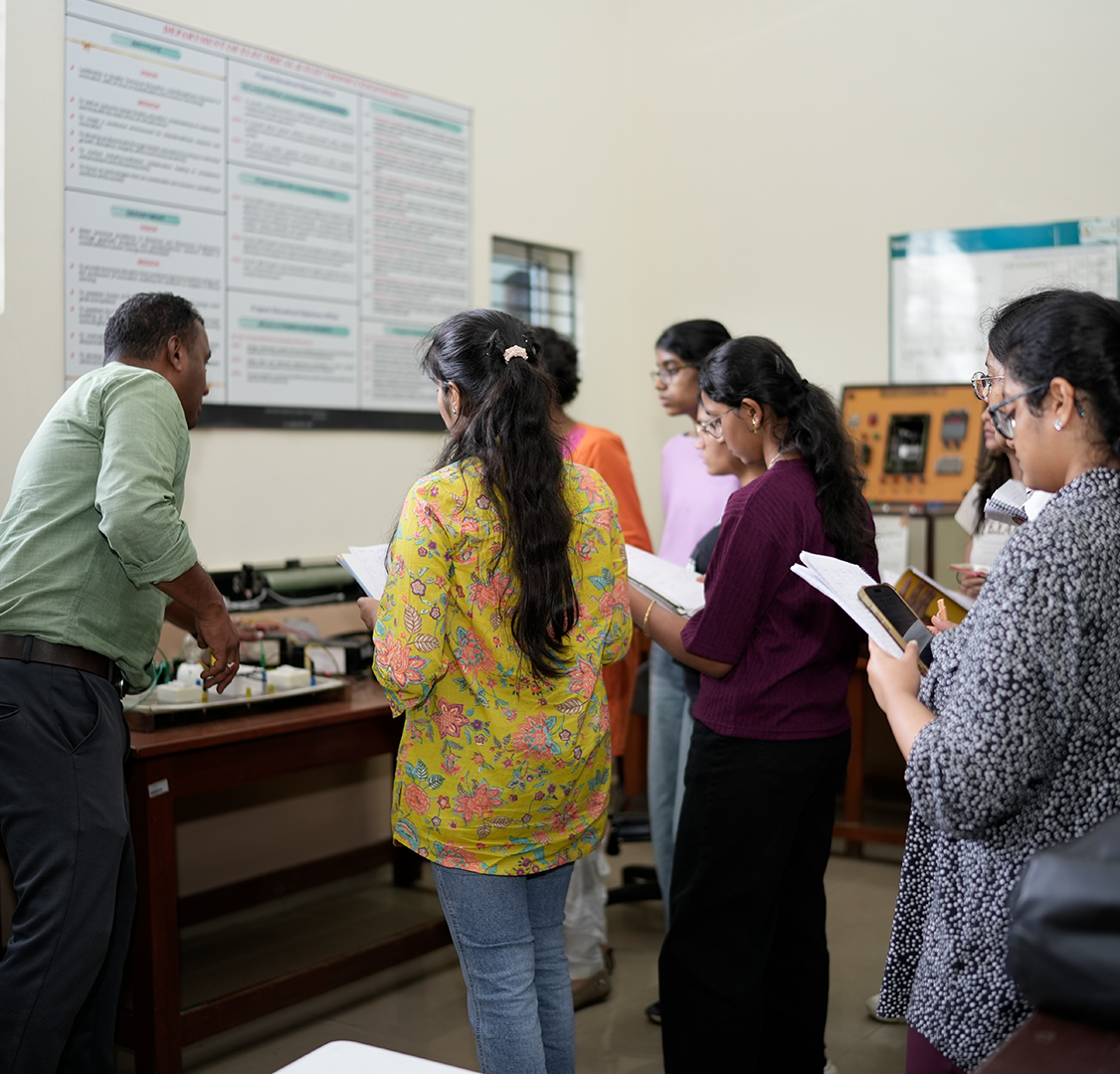

Programme Outcomes (PO)
M. Tech. in Power Electronics graduates will be able to:
- PO1: Independently carry out research/investigation and development work to solve practical problems in power electronics.
- PO2: Write and present a substantial technical report/document.
- PO3: Demonstrate a degree of mastery over power electronics at a level higher than the requirements in the Bachelor’s programme of Electrical Engineering.
- PO4: Demonstrate the modern engineering tools and techniques for modelling and development of power electronic systems.
- PO5: Apply the knowledge of power electronics for the development of solutions to problems about smart grids, renewable energy systems, electric vehicles, and modern power and control systems.
- PO6: Demonstrate professional integrity, ethics, teamwork, and soft skills for lifelong learning and sustainable development in the field of power electronics.
Programme Educational Objectives (PEO)
M.Tech in Power Electronics graduates will be able to
- Design, implement, protect, test, and validate systems for power electronic applications in electric drives and power & energy systems.
- Apply basic and advanced engineering knowledge to solve complex problems for integrated industrial power electronic systems.
- Pursue research, communicate effectively, and imbibe professional ethics and a desire for lifelong learning.
Admission process
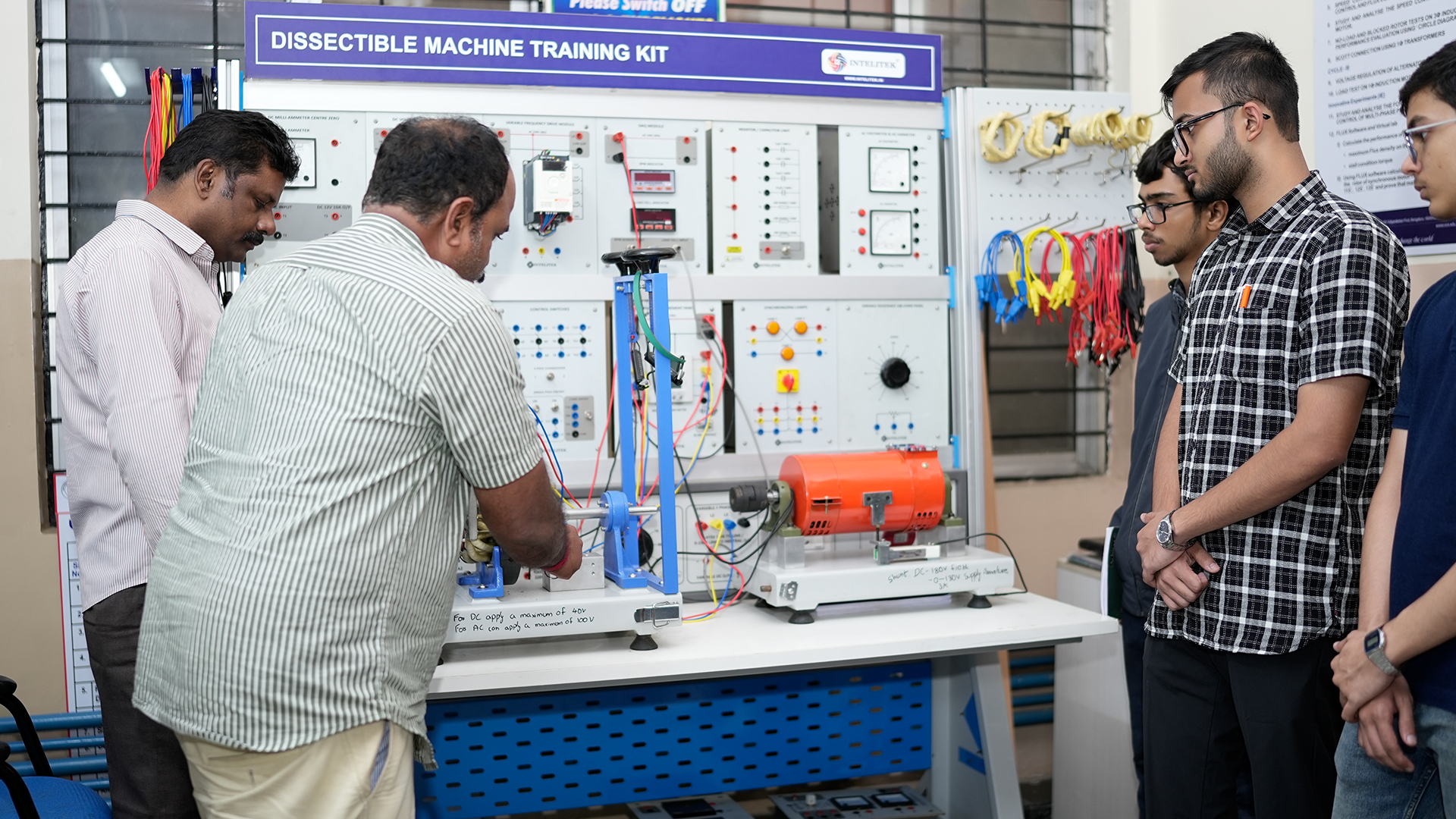
TOP CAREER OPTIONS
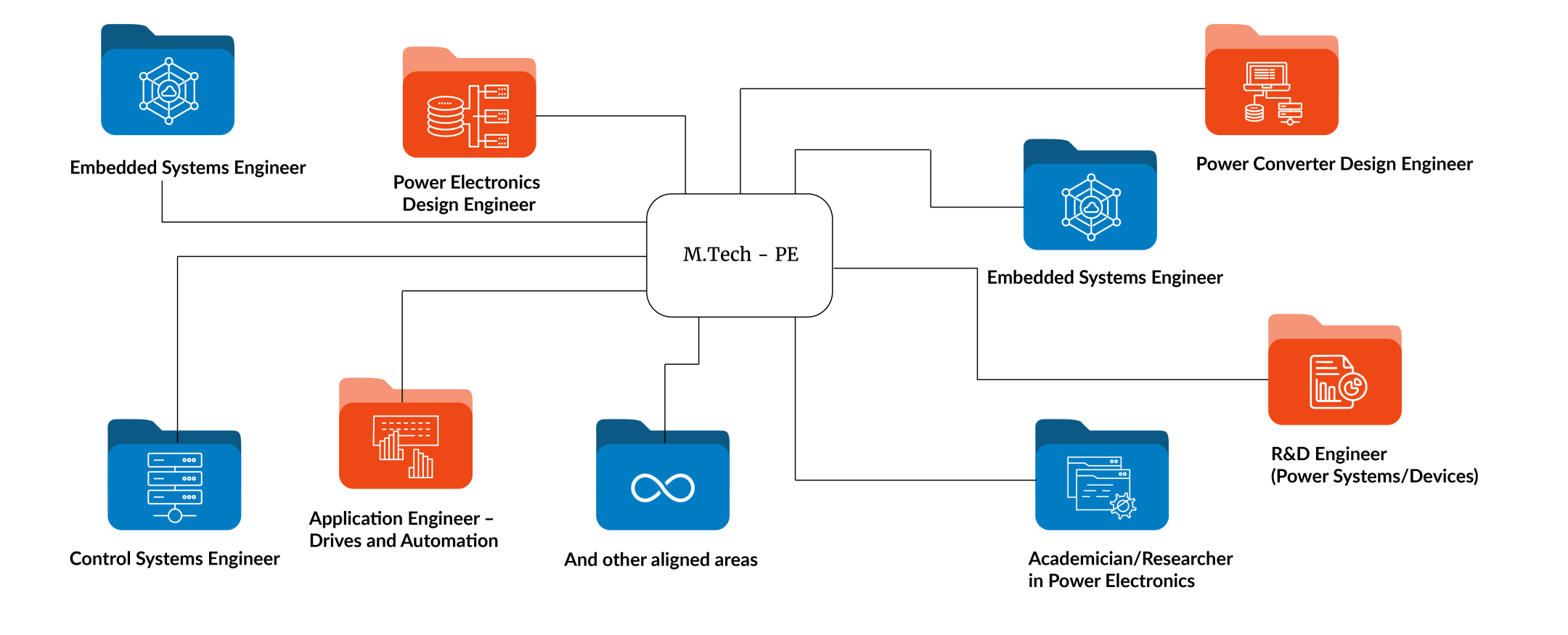
Research
Industry Sponsored Projects
Consultancy
Address:
RV College of Engineering, RV Vidyanikethan Post, Mysuru Road, Bengaluru – 560 059
Principal’s Office
Dr. K.N. Subramanya
Principal
RV College of Engineering
Phone no:
+91-080-68188100 / 8111
principal@rvce.edu.in
